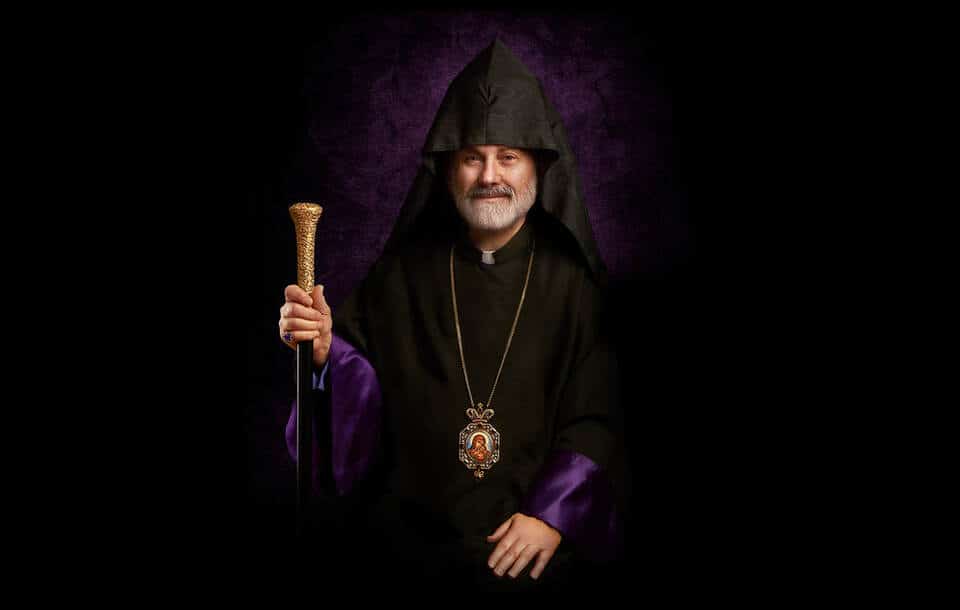THE STRENGTH OF PERSEVERANCE

The Prelate’s Message, March 14
The fifth Sunday of the Great Lent is known as the Sunday of the Judge, after a parable Jesus told to His Disciples (Lk 18.1-8). A widow constantly bothers a judge to take care of her case. In order to get rid of her, the judge considers it and gives the verdict in favor of the widow. Jesus concludes by saying that if the unjust judge eventually helped her, God will do more for all those who apply to Him.
The characters which Jesus uses in His parables are indeed fascinating. There is no equality of power, or social status between them, typically reminding us of the fighting of David and Goliath. Thus, He teaches us the validity of the Magnificat sang by the Holy Virgin Mary, that the Lord “has brought down the powerful from their thrones, and lifted the hungry with good things” (Lk 1:52)
The theme which precedes the parable is elucidated perfectly, for Jesus tells to pray always and not to lose heart. Prayer, as a superb means to communicate with our heavenly Father, is a great privilege granted to rational beings. The more we analyze it the more we will be fascinated by this. As much as imagination is incredibly the most sophisticated “mechanism” to travel, superseding even the speed of light, the uniqueness of prayer is that not only instantly it crosses the universe, but also that we come into the awesome presence of the Creator and we are granted an audience with Him. To talk to Him not as a creature to the Creator, but as a child to his Dad, without sophisticated words, explanations, or excuses have conversation. In this regard, it’s amazing that our Fathers of the Church have designated the reading of the prophet Isaiah, who on behalf of the Almighty Lord says, “before they call I will answer, while they are yet speaking I will hear” (Is 65:24). This verse with its most beautiful and inspiring message also raises a question that if God knows in advance everything, then is it necessary to pray Him? There is no doubt that God knows in advance, yet Jesus in the very beginning of His ministry taught us “ask and it will be given” (Mt 7:7), which presumes that first we should take the action which will be responded respectfully. The fact that God is omniscient should not lead us to carelessness, to idleness, to passivity, but rather as His coworkers, to be active and initiators.
Jesus teaches us also a pragmatic lesson to pray always. Like the beating of the heart and breathing the air we should constantly be in communion with our heavenly Father. We may be confronted by different challenges and people may diagnose it as lack of self-confidence or maturity, etc. Nevertheless, as much as we acknowledge ourselves as totally independent beings, it is not a shame to confess humbly that our independence is so fragile against not only natural disasters but even resisting a virus. Hence, putting aside all complexes of inferiority as mature rational beings, if we grasp the essence of this relationship, it’s not vertical as a master and a slave, but a loving and caring horizontal relationship, for we all are called to be coworkers of God. Is there a more sumptuous honor or title than to be coworker of the Creator of this Universe? Therefore, being granted a free audience with Him without any appointment or protocol, let us grasp this opportunity to be with Him whose only interest is our welfare, happiness and to share His majestic glory.
The second part of the theme is also very crucial, “not to lose heart.” It is true that the Benevolent God showers upon us abundantly visible and invisible goodness. It is also true that He grants more than we do ask as we see in the healing of the paralytic (Lk 5:23), nevertheless we should know that “asking and being granted” doesn’t follow the order of what the psalmist describes ”for He spoke, and it became to be” (Ps 32:9). The grace we are enjoying freely in His only Begotten Son, incarnated, crucified and buried for our sake is far beyond any gift which a human can ask for. Asking material things also can be granted immediately but in case of delay we should not lose our heart, but firmly believe that in due time it will be accomplished. Thus, if we analyze carefully the delay, we will witness that it mobilizes our inner and dormant abilities to face challenges and to overcome them with a firm conviction that with God everything is possible. It is not in vain that Saint Paul says, “we also boast in our sufferings, knowing that suffering produces endurance, and endurance produces character, and character produces hope, and hope doesn’t disappoint us” (Rom 5:3-5).
Therefore, having been instructed by our Lord Jesus Christ that prayer is part of the essentials in our spiritual as well as physical life, and it articulates endurance, character and hope, let us benefit from this free prescription and constantly pray, and as Saint Paul says in today’s reading, “do not worry about anything, but in everything by prayer and supplication with thanksgiving let your request be made known to God. And the peace of god, which surpasses all understanding, will guard your hearts and your minds in Christ Jesus,” (Phil 3:6-7,) to whom befits glory, dominion and honor forever. Amen.
